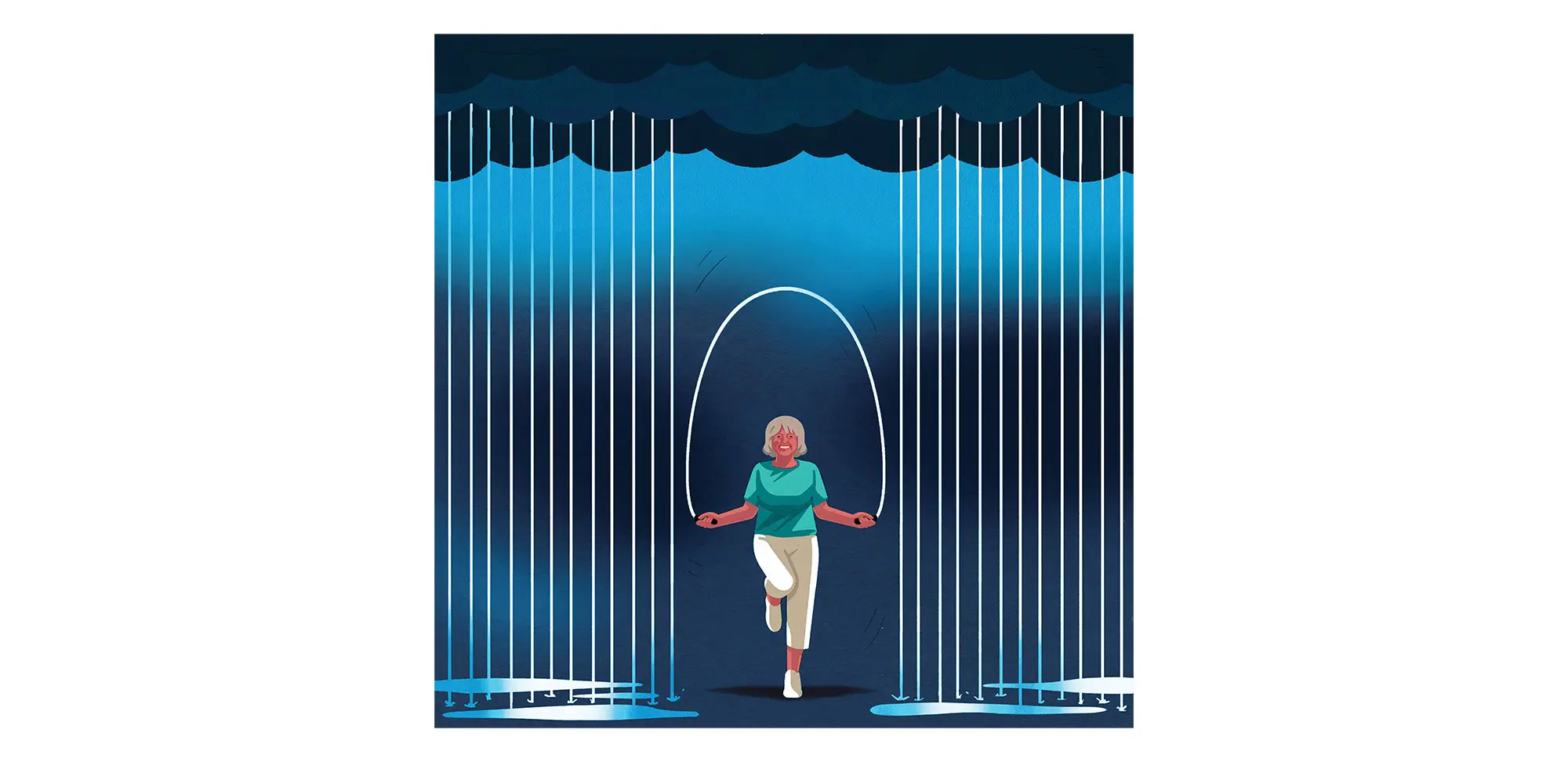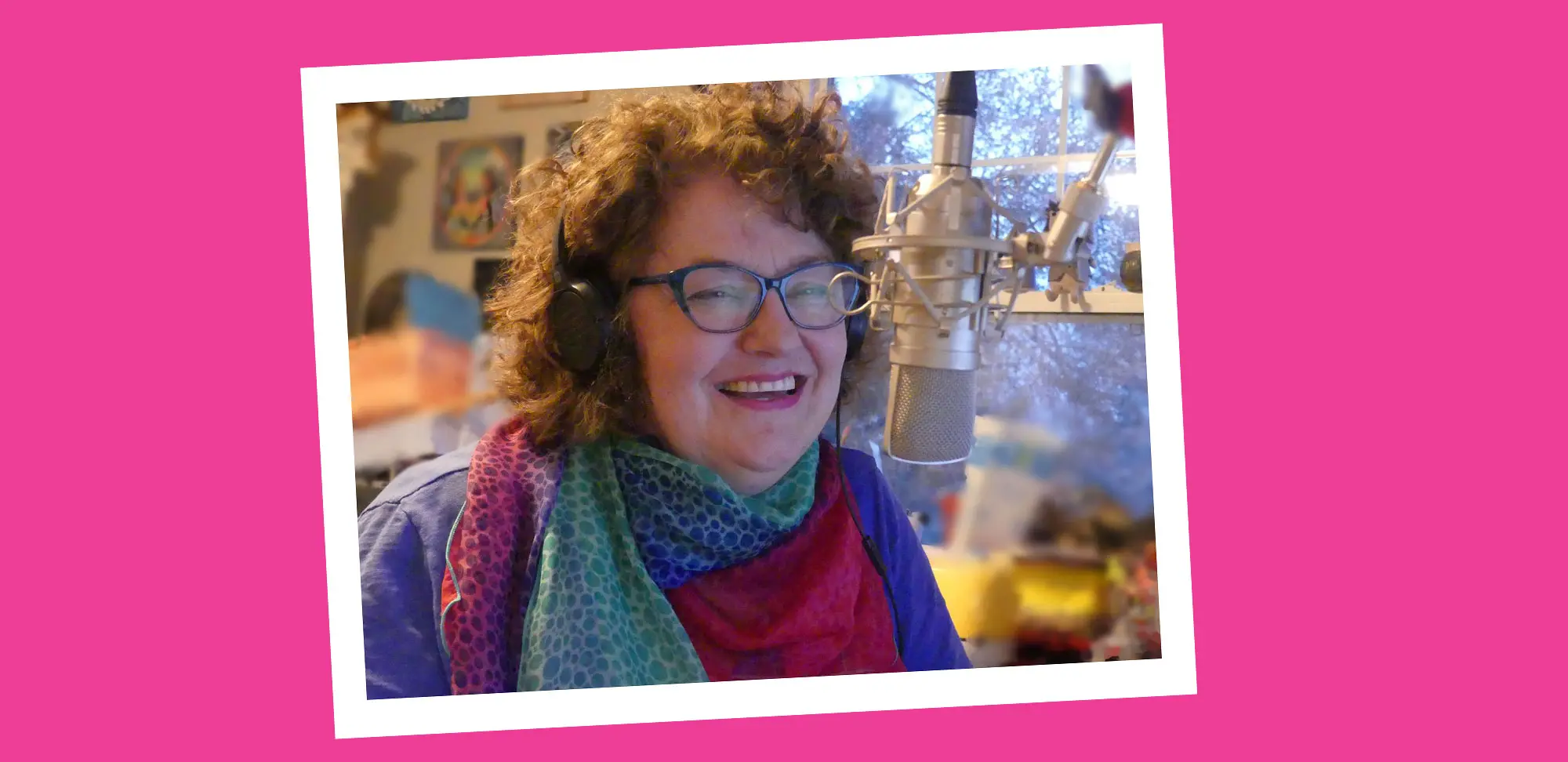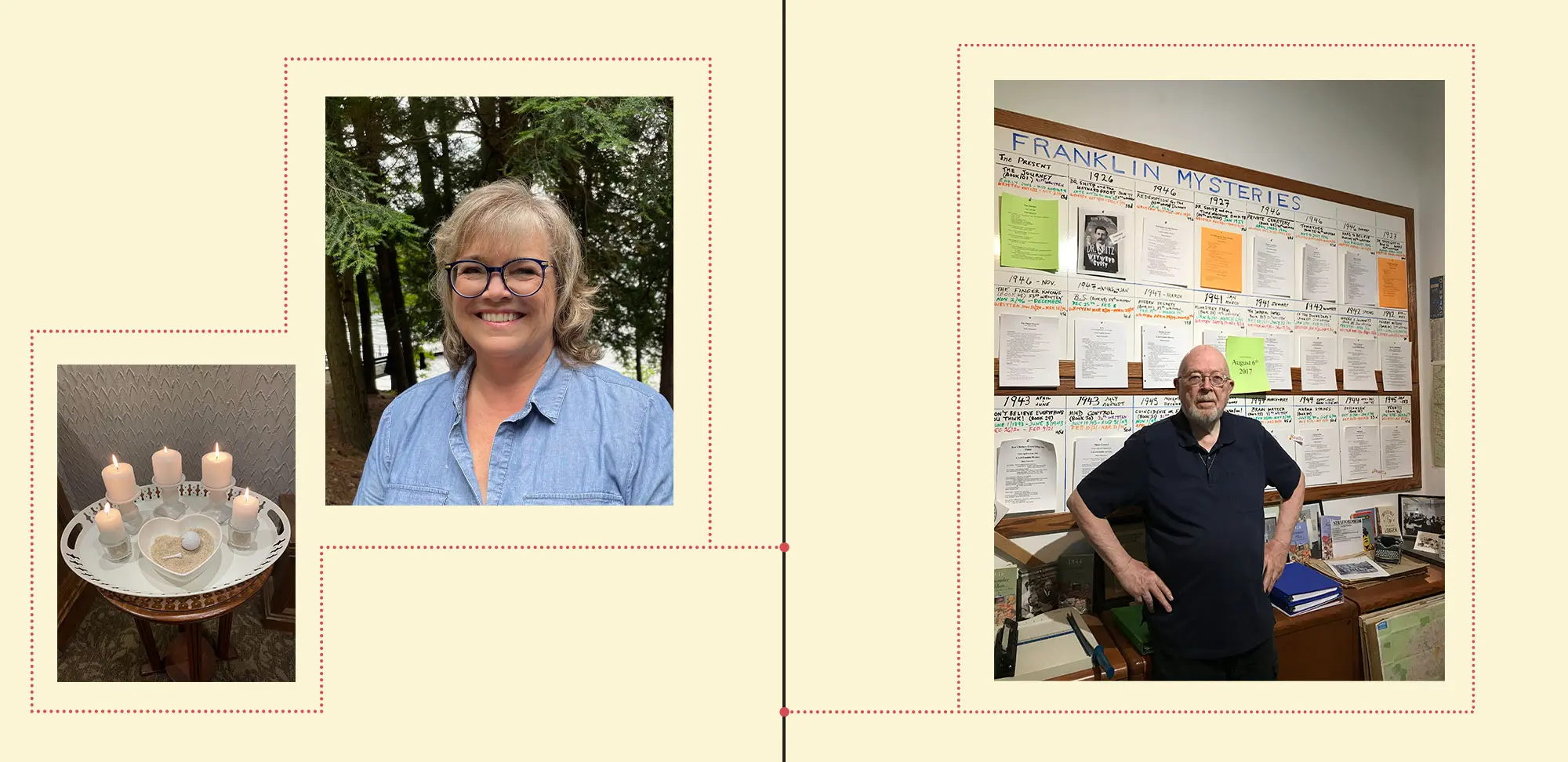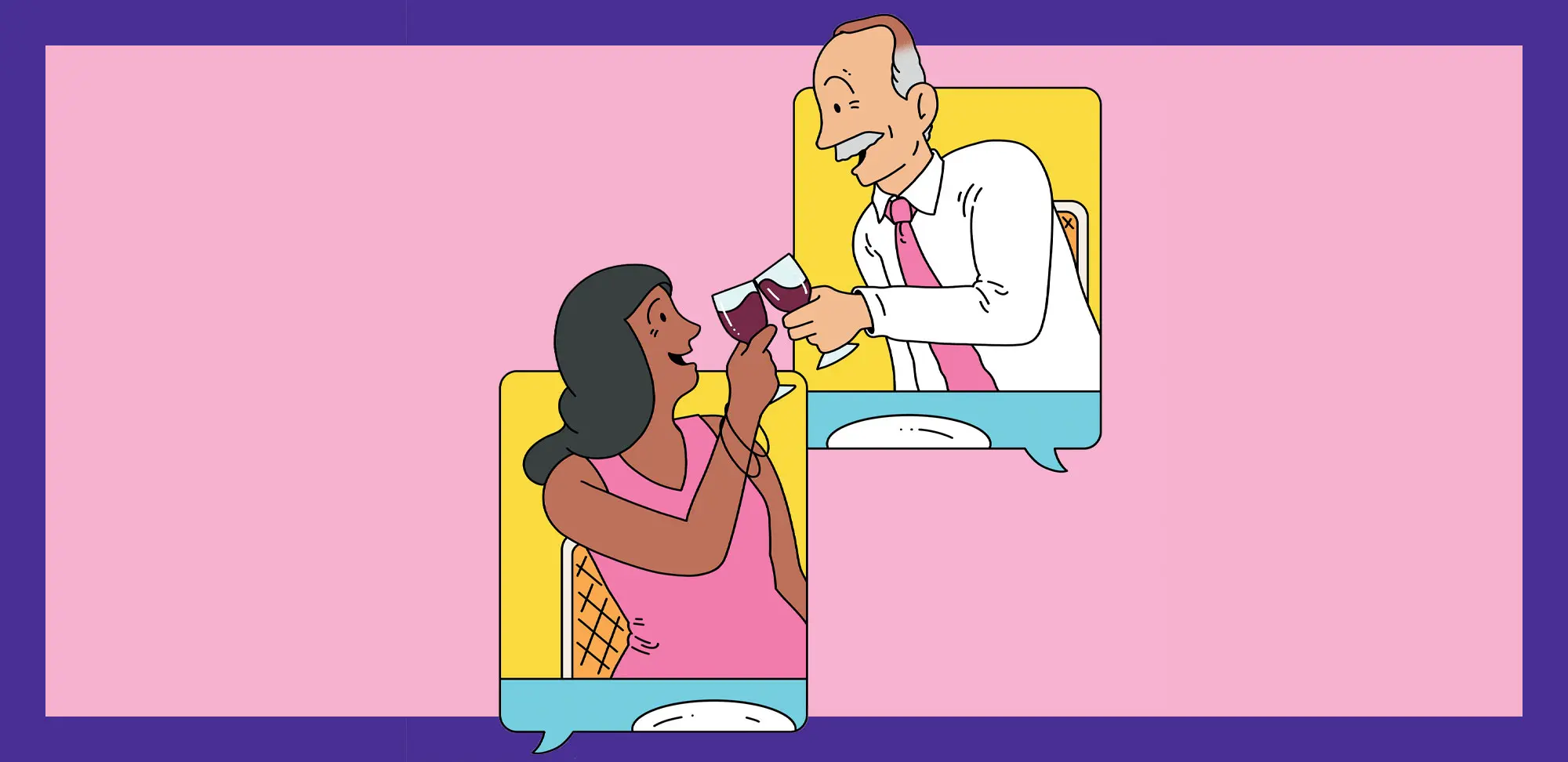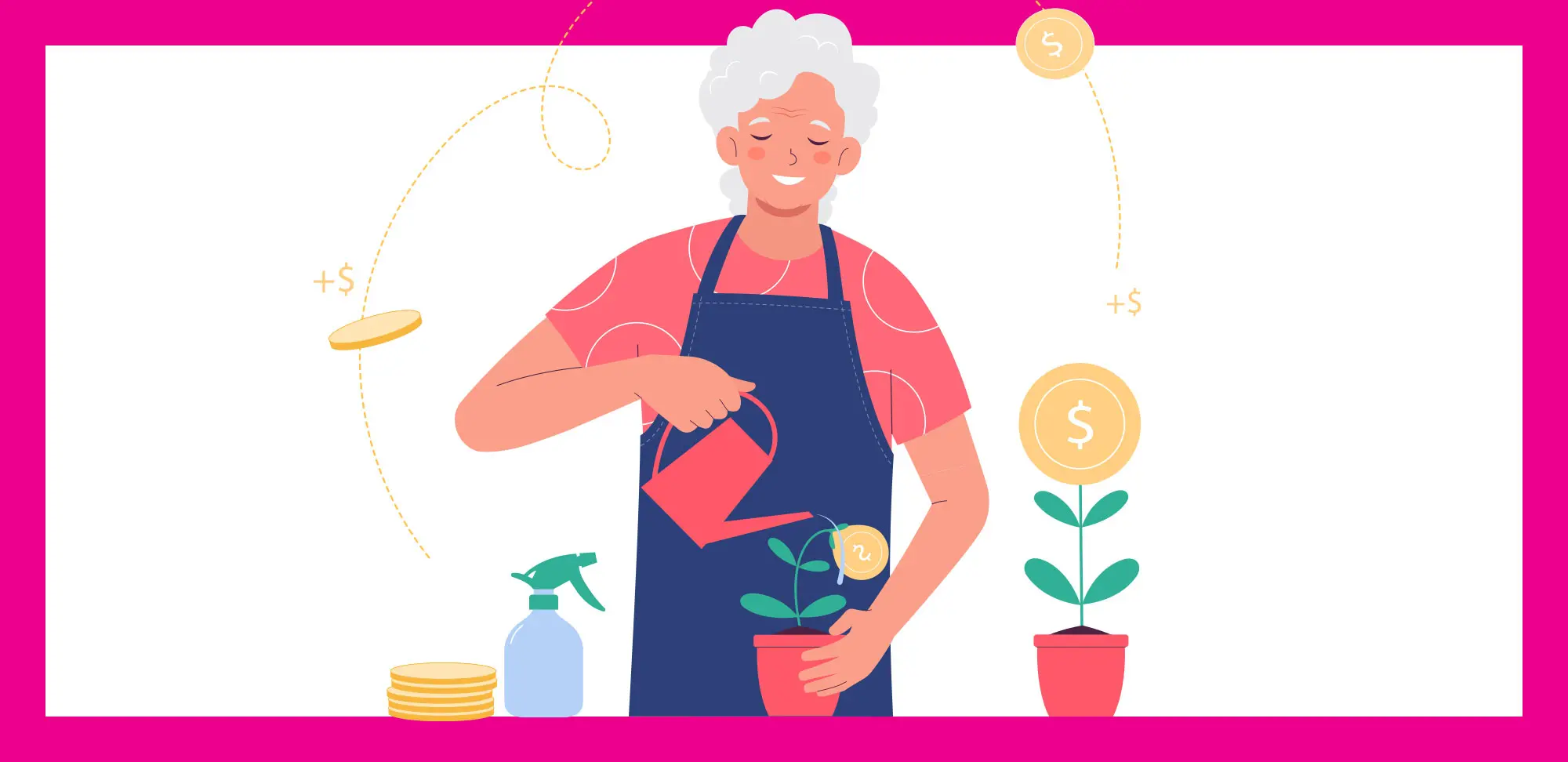It’s not difficult to find authors, philosophers and even entire religions that tell us that suffering — illness, grief, job loss, relationship breakdown, personal failure — is just part of life.
“Thy fate is the common fate of all, into each life some rain must fall,” according to William Wordsworth. Lynn Anderson reminded us we’re never promised a rose garden.
The Dalai Lama said in an interview, “The day of your birth was the birth of your suffering,” before adding a little joke about how people try to avoid acknowledging life’s problems. “People usually say ‘Happy birthday’ — nobody says ‘Happy birth-of-suffering-day!’” A better approach, the Dalai Lama suggests, would be to shift our attitude to suffering.
Bad stuff happens to everyone at some point, but research shows we can become more resilient to those experiences. Resilience isn’t a way of avoiding or ignoring setbacks, or having the brute strength to just put up with life’s setbacks; it’s finding ways to use your inner strength to rebound. As psychologist Darlene Mininni, author of The Emotional Toolkit, explains, “The issue is not to never fall down — we’re human. Resilience is having skills to know how to get up.”
For many people, adversity can be an opportunity for growth. In fact, medical researchers at the University of Southern California’s Resilience Lab have found that the more common outcome of personal tragedy is not post-traumatic stress disorder, but post-traumatic growth. Researcher Em Arpawong has described it as “when people undergo a life-altering, profound experience that they perceive as negative, but ultimately, they find a way to thrive and do better than expected.”
Resilient people tend to ask themselves what they can learn from a negative experience. That’s one way of shifting your attitude — instead of asking yourself “Why is this bad thing happening to me?” ask yourself “Why is it happening for me?”
“Resilience is a skill, psychologists have found, that can be learned. And there are many ways to start.”
It’s not always possible to make lemonade from life’s lemons. Approaching personal tragedies as learning opportunities may be a stretch for most of us, and the idea can seem like glib pop-psychobabble.
But resilience is a skill, psychologists have found, that can be learned. And there are many ways to start.
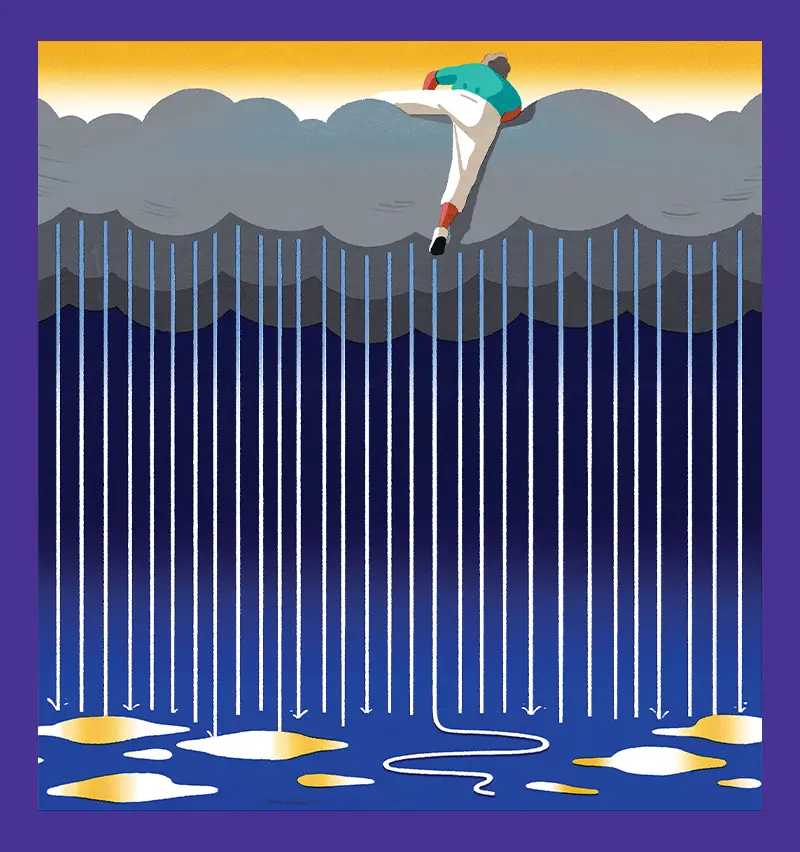
Take care of yourself
No surprise: The basics of moderate exercise, good sleep and a healthy diet have all been shown to improve resilience and help you respond better to stress and adverse events. After eight weeks of exercise, three times a week, participants in a 2021 study at Northern Arizona University showed greater resilience to oxidative stress — that’s free radicals versus antioxidants in your body. And the effect held for men and women, young and old; greater gains in aerobic fitness match up with improved resilience. Similarly, mice that could exercise as much as they liked were found, in a 2020 study at Emory University in the U.S., to have higher levels of galanin, a hormone associated with good mental health, and they return to normal behaviour faster after a stressful event than mice that don’t exercise.
Mindfulness meditation, too, can give you the skills to escape thinking patterns that can make you feel stuck. Mindfulness is being aware, moment by moment, of what’s happening now — your current feelings, thoughts, sensations — and simply recognizing them, without judgment. In mindfulness meditation, which often takes the form of focusing your mind on your breath, when a stray thought crosses your mind — as they do — you don’t try to suppress it, you just label it: “Oh, there’s a thought. Hmm.”
Expanding your frame of awareness can help when you’re faced with a crisis. Many of us focus on one aspect of a problem, thinking about it over and over again in a frustrating, all-consuming loop — we ruminate. When you can step back and recognize that your thoughts are just thoughts, you can change how you approach them, moving past the round-and-round rumination that isn’t helpful. Maybe, with that little bit of distance, you’ll realize you don’t need to always agree with what you’re thinking.

Build relationships
Social connections are good for us. The Alameda County Study, a longitudinal study that ran from 1965 to 1999, found that people with strong social support —friends, family, connections through volunteering and clubs — tended to live longer, even if they smoked or were overweight. Being isolated is estimated to be the equivalent of smoking 15 cigarettes a day. You don’t have to be a social butterfly, though: Infrequent social connection, as little as once every three weeks, or a connection through social media is enough to make a difference. Even a non-human connection, with a pet, improves resilience.
Cultivate optimism
Humans evolved to be pessimists, says Martin Seligman, widely regarded as the father of positive psychology. When the most serious threats we faced were physical, the person who paid more attention to problems that could occur — bad weather, predators, lack of food — was more likely to survive. Pessimism still has value: People who practise defensive pessimism — setting low expectations, anticipating worst-case scenarios, and then taking action accordingly — are less anxious and can be more motivated.
In our modern world, though, optimists have better health outcomes. In 2019, a review of 15 studies in the U.S., Europe, Israel and Australia found that the optimists among the 229,000 participants had a 35 per cent lower chance of getting heart disease and a 14 per cent lower chance of early death.
But optimism can cross over into toxic positivity — you know, that smile-though-your-heart-is-breaking response — when it denies reality by refusing to recognize negative emotions. It’s treating the facile advice that “if life gives you lemons …” as an all-purpose remedy for every problem. There’s a middle ground: optimism tempered with realism. As one wag put it, “If life gives you lemons, remember that they are the result of humans crossbreeding bitter oranges with citrons and do not occur naturally.”
An optimist, according to Mininni, acknowledges that difficult times are real and genuinely distressing but sees them as temporary. They try to see things as they are, but not worse than they are. One way to frame problems as temporary is to avoid thinking in terms of “always” and “never.” Those words turn a current situation into something that’s perceived as permanent. Even with situations that are permanent, such as chronic illness or the death of a loved one, our feelings about them can change.
Another technique for cultivating optimism is to shift your focus by balancing our evolved tendency to pay close attention to threats with an awareness of positive things in life. A gratitude journal — writing down a few good things in your life every day — is one way, but you can also just thank people more for little things they do, pay attention to how it feels when something good (especially something small) happens, or do something that is of service to others. Helping others become more resilient will help you be more resilient, too.
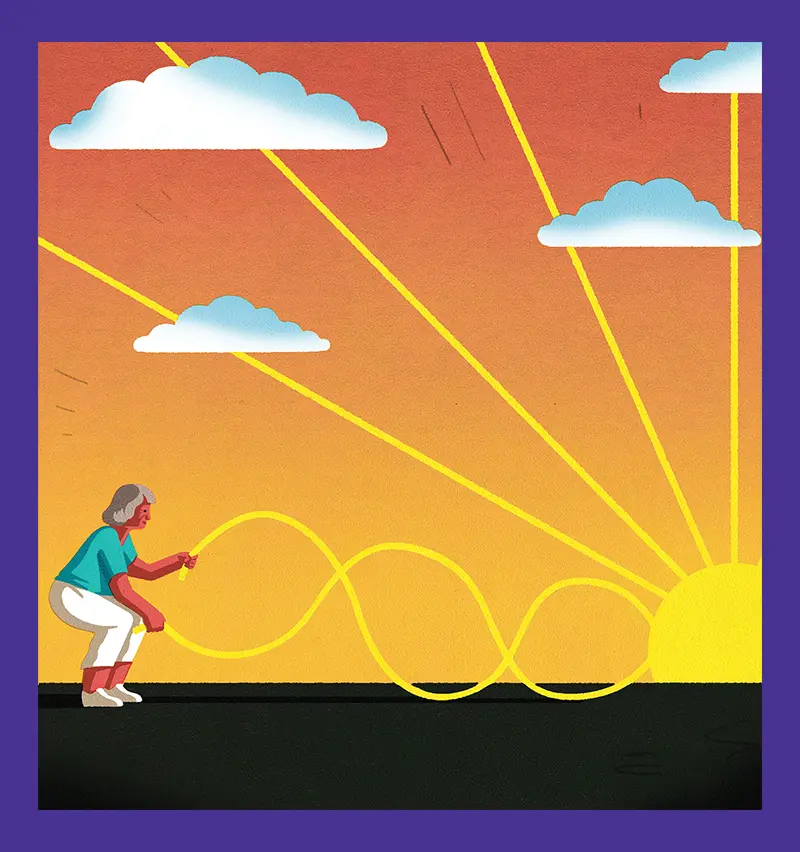
Societal resilience
When we were in the middle of pandemic lockdowns and vaccine rollouts, the prevailing view was that almost everyone’s mental health was getting walloped, and the effects would be long-term. We talked — in Zoom calls or two-metre-distant conversations — about the “new normal” and “mental health tsunamis.”
A meta-analysis study published this March in the British Medical Journal shows, in hindsight, a more nuanced view. The researchers, from McGill, McMaster, the University of Toronto and others, reviewed 137 studies from 31 countries. And while individuals and specific groups had a range of mental health experiences, overall and over time the mental health of most of the populations studied was surprisingly stable. “People have been much more resilient than many have assumed,” wrote Ying Sun, a research coordinator at Lady Davis Institute in Montreal and one of the study authors.
Lucy Hone, a New Zealand psychologist who worked with survivors of the 2011 Christchurch earthquakes, suggests that one of the keys to resilience in societies is visibility: “Not seeing yourself represented in society, whether it’s [because of] race, sexuality, mental illness, is hurtful when it comes to resilience.” When societies are more resilient, much like when individuals are resilient, they’re better able to respond to crises, mobilize resources quickly, protect vulnerable members and the economy — and are better able to trust each other.
Resilience exercises that work
Three senses
Anxiety Canada suggests this exercise to be more calm, mindful and focused on the present. Try it next time you’re feeling annoyed by something you can’t change, like waiting in line. Take a few deep, slow breaths and ask yourself: What are three things I can hear right now? What are three things I can see? What are three things I can feel?
Gratitude journal
Challenge yourself to write three to five things, every day, that you’re grateful for or that went well — small things like a comfortable chair or catching a bus. After doing this exercise, a study group of people with debilitating, permanent illnesses became more optimistic and more satisfied, and they slept better.
Another study had students write five lines every day about one positive thing. It turns out the more specific and detailed your gratitude, the better.
Best possible self
Every day, imagine one aspect of your life — health, relationships, hobbies — and imagine exactly what it would look like in your best possible future. Spend 15 minutes writing about it, in detail.
This exercise can improve your mood and motivation. In some studies, patients with chronic pain who did this exercise over several weeks had decreased pain symptoms.
